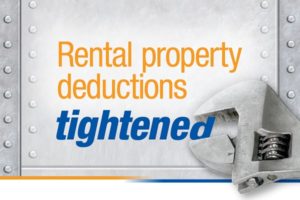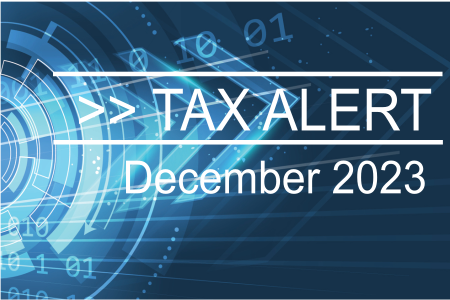Most property investors breathed a sigh of relief when rumours about the demise of negative gearing in the Federal Budget came to nothing. There were, however, several changes introduced which have the potential to impact your property investment portfolio.

For some investors, the changes will significantly reduce the annual deductions they can claim on their rental properties, reducing their cash return. The changes apply to both individual investors and self-managed super funds (SMSFs), so investors may need to ensure they have sufficient cash flow from other sources to compensate.
The reforms highlight the continuing spotlight on tax deductions for investment and holiday rental properties, so investors need to be cautious and stay within the rules.
Travel expense deduction scrapped
The key change is that as of 1 July 2017, property investors are no longer be able to claim a tax deduction for travel to maintain or collect rent for their residential rental property, or to inspect it during or at the end of a tenancy. In addition, travel expense claims for preparing the property for new tenants or visiting a real estate agent to discuss the rental property have also ceased.
Where an investor engages a third-party such as a real estate agent or property management service to oversee their property, those expenses continue to be deductible.
For many investors, travel expenses were a valuable deduction especially for those owning properties interstate or overseas. According to the Treasurer, the rule change has been implemented as an “integrity measure to address concerns that such deductions are being abused”. Much of the concern related to taxpayers claiming travel deductions without correctly apportioning the costs, or claiming travel costs that were for private travel purposes.
Plant and equipment deductions tightened
Prior to recent changes, property investors were eligible to claim qualifying plant and equipment depreciation on assets in an investment property they purchase, even when the assets were installed by a previous owner. (Depreciation is the decline in value of assets with a limited effective life.)
Under the other key rule change announced in the Budget, depreciation deductions will now be limited only to the expenses directly incurred by the property investor, so subsequent owners will not be able to claim depreciation on existing plant and equipment assets in a property.
Broadly, plant and equipment items include mechanical fixtures or those easily removed from the property such as carpet, dishwashers and ceiling fans.
The rule change is due to concerns that some plant and equipment items are being depreciated multiple times by successive property owners.
Investors will still be able to claim capital works deductions (also known as building write off), including any additional capital works carried out by a previous owner. These will be based on the original cost of the construction work, rather than what the subsequent owner paid to purchase the property.
Only new investments affected
The depreciation changes will only apply to new property investments. Plant and equipment forming part of residential investment properties as of 9 May 2017 (including contracts already entered into on Budget night) will continue to be eligible for depreciation deductions until either the investor no longer owns the asset or the asset reaches the end of its effective life.
Plant and equipment purchased for a residential investment property after 9 May 2017 will only be claimable as a tax deduction over the effective life of the asset. The costs of these items will be reflected in the property’s cost base for capital gains tax (CGT) purposes.
As these expenses have changed from an income expense to a capital expense, property owners have lost one of the immediate tax benefits of holding a residential rental property, with the tax benefit now being delayed until the property is sold. This may have a significant impact on the cash flow received from your investment.
If you own residential property investments or plan to in future, call us to discuss how the new rules will affect their tax treatment.
Did you enjoy this article?
Click below to share it
More News Articles

What the 2025 Federal Budget Means for you
Treasurer Jim Chalmers’ fourth federal budget
was just announced

Retirement Planning: It’s Not all About the Money
Retirement is often a massive life change for the majority of people who experience it

FBT – How Fringe Benefits Tax Works
FBT is separate to income tax. It’s calculated on the taxable value of the fringe benefit

Tax Alert December 2023
The ATO is getting back to business with it’s lenient approach during the pandemic over, it’s focus now is returning to traditional debt collection

How a Super Recontribution Strategy Could Improve Your Tax Position
The main reason for implementing a recontribution strategy is to reduce the taxable component of your super and increase the tax-free component

Rental investor? How to Get Your Tax Return Right
Extra care is needed when lodging returns with rentals
Connect Through our Socials
While you may have come to us from a variety of sources, the time has never been better to join us.
Connect through out socials to keep up to date with our latest news and get some tips.




